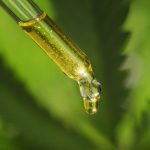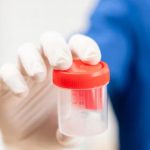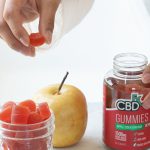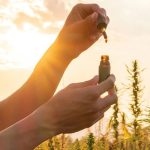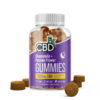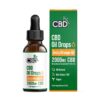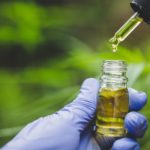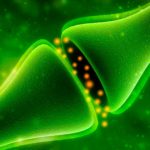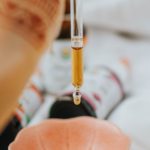
Medically reviewed by
Dr. John Rackham
Written by Michael Wright
Updated on November 3rd, 2021
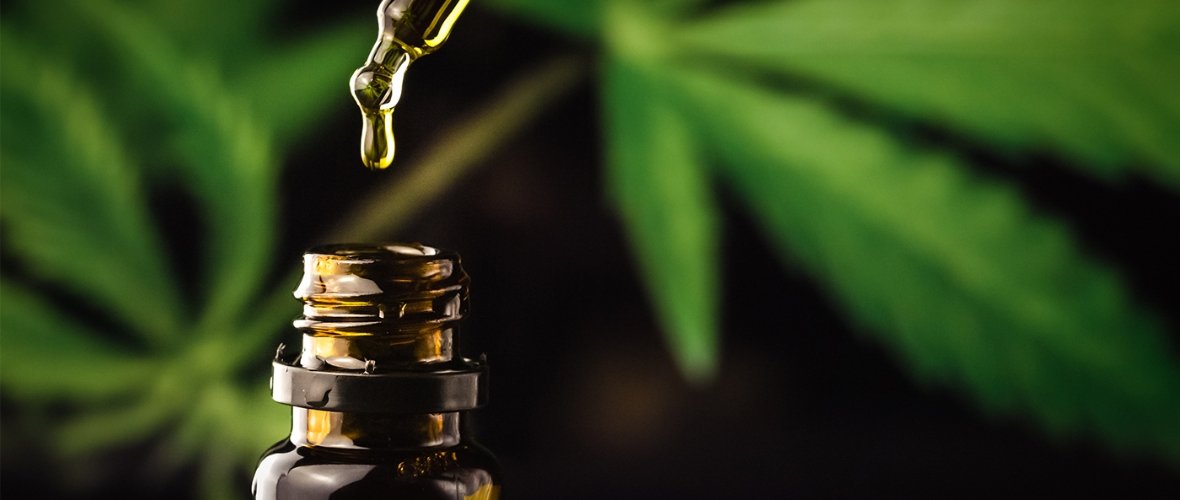
One of the most popular health supplements of the last decade has been CBD, or cannabidiol. From CBD wellness products to CBD sleep aids to CBD topical creams and CBD balms for skin, muscles and joints, there’s been a big demand for this popular natural compound. As with any wellness product, people have a lot of questions about CBD, ranging from “What does CBD stand for” to “How does CBD work?” In this article, we hope to fill in some of the gaps in your CBD knowledge and help you to answer the question, “What is CBD?”
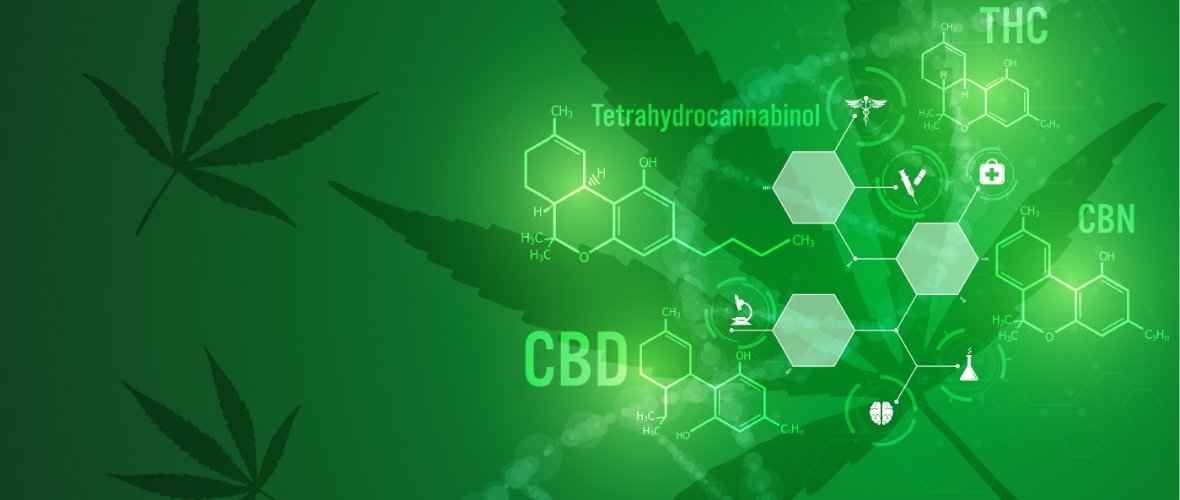
CBD 101: What Does CBD Stand For?
CBD stands for cannabidiol, a chemical compound found in the cannabis hemp plant. CBD is one of over 100 such compounds, called cannabinoids. CBD is one of the most prevalent of these hemp-derived cannabinoids, with the other being tetrahydrocannabinol, also known as THC. Unlike THC, cannabidiol is not psychoactive, meaning it has no intoxicating effects. In other words, it will not get you “high.”
Cannabinoids: CBD’s Super Siblings
There are also notable minor cannabinoids, including CBG, which is often referred to as the “mother of all cannabinoids.” CBG, or cannabigerol, gets its nickname from the fact that other cannabinoids are derived from its acidic form, CBGA. CBN is often called “the ultimate relaxation cannabinoid.” CBN, or cannabinol, is created when THC is heated and exposed to oxygen. This explains its calming and relaxing effect on the body. However, because it is derived from THC, it may cause some dizziness, disorientation, or muscle relaxation, so it is important to know how CBN affects you before participating in activities that require your full attention. There are other notable cannabinoids as well, including CBC, THCA, THCV, CBDA, and CBDV. Each has its own unique characteristics, many of which scientists are just now catching up with.
But let’s get back to the subject at hand. We know what CBD stands for; now, let’s see what it does.
CBD 101: How Does CBD Work?
To learn how CBD works, we need to turn our focus, for the moment, to the human body and the endocannabinoid system. Actually, all vertebrates have an endocannabinoid system. Studies have shown that this system works in support of the central and peripheral nervous systems, as well as other systems and organs throughout the body. The body actually produces its own cannabinoids, called endocannabinoids, which are little neurotransmitters that bind to receptors in the nervous system.
There are two such receptors in the nervous system. The first is the CB1 receptor. This works, for the most part, with the central nervous system and helps to regulate such essential functions in the mind and body as sleep, mood, memory, appetite, motor control, and more. The second receptor is called, you guessed it, the CB2. This binds primarily with the peripheral nervous system, which regulates pain and inflammation. When endocannabinoids bind to these receptors, they lend crucial support to these systems.
So, where does CBD fit in?
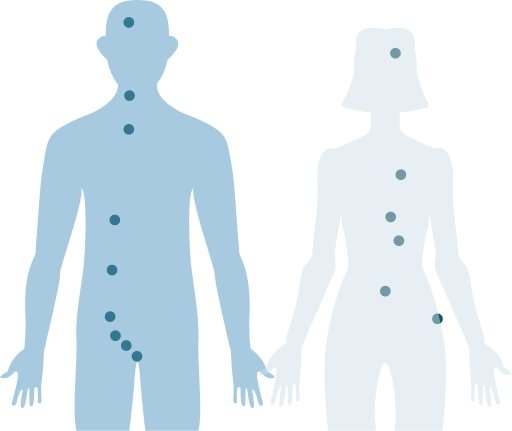
CBD and the Endocannabinoid System
CBD is a plant-based cannabinoid, or phytocannabinoid, that works in much the same way the body’s own endocannabinoids work. While it doesn’t doesn’t attach directly to these receptors, cannabidiol does activate them, sending a boost of support through the entire system — helping the endocannabinoid system, the central nervous system, and the peripheral nervous system all work better.
CBD 101: Where Does CBD Come From?
Didn’t we already cover this? CBD comes from hemp. But what is hemp, you ask?
Hemp is a cannabis plant with less than 0.3% THC content. Marijuana, on the other hand, is a cannabis plant that can contain upwards of 30% THC content. Hemp-derived oils, therefore, do not have enough THC in them to get you “high.”
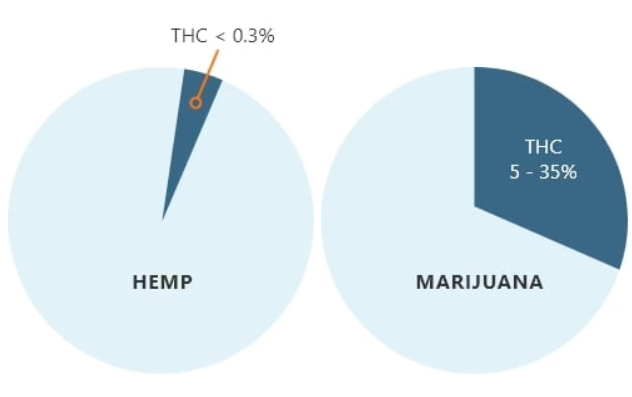
But hemp does have a long and interesting history, stretching all the way back to around 8,000 BCE, in ancient Taiwan and China. Throughout the course of human history, it’s been used to create rope, cloth, paper, building materials, animal feed, and other interesting things. And for millennia, it has also been used for medicinal purposes, including pain relief, treatment for seizures, and sleep.
A Quick Note on CBD in the UK
It’s important to pause our CBD 101 class and state clearly that, by law in the UK, we cannot make any medicinal claims about CBD or any cannabis product. CBD and other cannabinoids are still being studied for their medicinal uses. But for now, anything we relate here is merely anecdotal and should in no way be construed as medical advice.
And Now, Back to Our Lesson on Hemp and Cannabinoid Content
In the United States, hemp was a major crop for the first 150 years of the nation’s history, in states like Kentucky, which was the nation’s biggest producer of this cash crop until the Civil War. But in the 1930s, hemp was lumped in with marijuana as the government came down hard on cannabis use. And so, it would be decades before hemp could be grown, processed, and sold legally in the US. Fortunately, the 2018 USDA Farm Bill made all of these things legal on a national level.
The UK followed suit and only recently has allowed hemp-derived products, like CBD, to be sold in the UK. And even these products have come with a strict policy of no more than 0.01% THC content in any CBD product. This is why you cannot buy full spectrum CBD products in the UK. Full spectrum CBD contains all of the chemical compounds from the cannabis hemp plant’s buds, leaves and stems. This includes cannabinoids (like CBD and THC), terpenes, flavonoids and healthy fatty acids. Since the THC content of hemp is less than 0.3%, there has to be additional filtering in order for your CBD product to be in compliance with UK law. The resulting CBD oil is called broad spectrum CBD, which still has a rich cannabinoid profile, but all detectable amounts of THC have been removed.
See the Data: CBD Research Kicks Into High Gear
And after taking several decades off, the scientific community began to study the medical benefits of cannabis and CBD in earnest, particularly after the discovery of the aforementioned endocannabinoid system in the early 1990s. As hemp has been legalised in recent years, this research has escalated and has resulted in many promising studies that seem to reflect some of the therapeutic uses from hemp’s long history. It is the hope of the CBD community that this research data will lead to broader legalisation. But for now, as previously mentioned, it is illegal in the US and the UK to make any medical claims about CBD.
Hemp Oil vs. Hemp Seed Oil: Check Your Label
So, CBD is derived from the hemp plant. But it’s not the only oil derived from the cannabis hemp plant. Hemp seed oil is extracted from, yes, the seeds of the plant. But this oil has different benefits than CBD oil, which is extracted from the buds, leaves, and stalks. Hemp seed oil is mainly used for beauty and skincare products. This oil moisturises the skin and has anti-inflammatory properties. Hemp seed oil may be effective in treating various skin conditions, but more research is needed before we can state anything definitive.
So, check your label carefully when you’re shopping for CBD products. You might end up with a beauty product you didn’t intend to purchase.
CBD 101: How Is CBD Processed?
Originally, CBD was extracted from the hemp plant by steam distillation, which didn’t require much more than water, a specialised glassware set, and extremely high temperatures. Unfortunately, this method was inefficient, not only leaving a decent amount of the CBD oil unextracted, but also unintentionally removing some of the cannabinoids from the oil. Because steam extraction was inefficient, ineffective, and weakened the potency of the CBD oil, folks looked for alternative methods of CBD extraction.
Solvent extraction became the next big thing in CBD, with a solvent like alcohol being used in place of steam. The problem with solvent extraction for CBD is, some of that solvent can linger behind in the CBD oil that’s being produced. And since alcohol can be an expensive solvent, cost-cutting solvents — like butane — have been used as a cheap substitution, raising a health risk for CBD consumers. When used properly, ethanol extraction is generally considered a safe way of extracting CBD and can produce a high-quality CBD product. It comes down to trusting your supplier to extract the ethanol completely, with no margin for error.
The cleanest and most efficient method of CBD oil extraction is CO2 extraction. This method substitutes carbon dioxide for steam and solvents, making the CBD extraction completely clean. It not only leaves all of the plant’s chemical compounds, including CBD, intact in the oil, but it also leaves behind zero residue. While CO2 extraction is more expensive than other CBD extraction methods, it creates a much safer and more effective CBD product.
See for Yourself the Power of CBD
CBD is a fascinating compound, and we’re just now beginning to fully unlock CBD’s wellness potential. While humans have been using it, to some degree, for thousands of years, we’re still learning more about its benefits every day. And we’re putting it in all sorts of exciting products — from CBD gummies, CBD capsules, and CBD edibles (let’s hear it for CBD cookies!) to CBD oil tinctures, CBD topicals, and CBD vaping products. Now that you know what CBD is, we encourage you to explore our CBD products and see how cannabidiol can work for you!
Ready to explore the world of CBD? Try our original Mixed Berry CBD Gummies!
- Holland, Kimberly. “CBD vs. THC: What’s the Difference?” Healthline.com, https://www.healthline.com/health/cbd-vs-thc. Updated 20 July 2020.
- Eske, Jamie. “CBD: Does It Cause a High?” Medical News Today, https://www.medicalnewstoday.com/articles/does-cbd-get-you-high. 31 August 2020.
- Zou, Shenglong and Kumar, Ujendra. “Cannabinoid Receptors and the Endocannabinoid System: Signaling and Function in the Central Nervous System.” International Journal of Molecular Sciences, https://www.mdpi.com/1422-0067/19/3/833. 13 March 2018.
- Raypole, Crystal. “A Simple Guide to the Endocannabinoid System.” Healthline.com, https://www.healthline.com/health/endocannabinoid-system. 17 May 2019.
- Ferguson, Sian. “Hemp vs. Marijuana: What’s the Difference?” Healthline.com, https://www.healthline.com/health/hemp-vs-marijuana. 27 August 2020.
- Brand, E. Joseph and Zhao, Zhongzhen. “Cannabis in Chinese Medicine: Are Some Traditional Indications Referenced in Ancient Literature Related to Cannabinoids?” Frontiers in Pharmacology, https://www.frontiersin.org/articles/10.3389/fphar.2017.00108/full. 10 March 2017.
- U.S. Department of Agriculture. “Farm Bill.” https://www.usda.gov/farmbill. 20 December 2018.
- Uncredited. “The Discovery of the Endocannabinoid System: Centuries in the Making.” International League Against Epilepsy, https://www.newswise.com/articles/the-discovery-of-the-endocannabinoid-system-centuries-in-the-making. 27 January 2019.
- Murray, Dana. “CBD Oil vs. Hempseed Oil: How to Know What You’re Paying for.” Healthline.com, https://www.healthline.com/health/hemp-vs-cbd-oil. Updated 3 April 2020.


